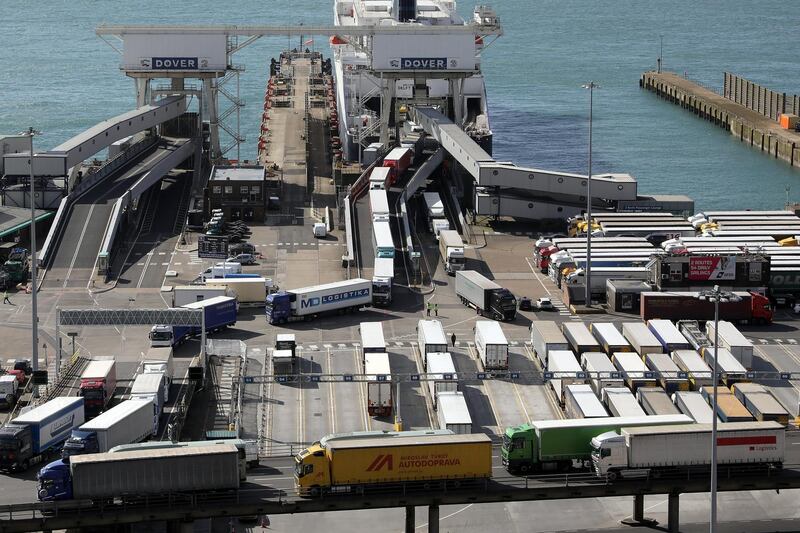Britain’s home secretary has refused to rule out the prospect of civil disorder if the UK drops out of the European Union next year without a Brexit agreement.
The Sunday Times published a leaked memo that revealed police chiefs had drawn up plans to deal with any unrest resulting from food and drugs shortages after March 29, 2019, when Britain formally exits the EU.
Speaking to the BBC, Mr Javid said: "I'm glad the police and other experts are looking into this and thinking what might happen in a no-deal scenario.
“I don’t expect a no-deal outcome but we need to prepare for all contingencies.”
_______________
Read more:
Boris Johnson criticised for suicide vest jibe
Will Brexit lead to rotting fruit in the ‘Garden of England’?
_______________
His remarks were picked up by the opposition Labour Party, whose crime spokeswoman Louise Haigh described the scenario as a frightening prospect.
“This is the nightmare scenario long feared; according to the UK’s most senior police officers a no-deal Brexit could leave Britain on the brink.”
According to the document seen by the newspaper, the National Police Co-ordination Centre, which organises officers in times of national crisis, envisages there could be up to three months of disruption either side of Brexit day.
The report said that “widespread leave embargoes” will be required by police forces across the country, to ensure that there will be enough officers on hand in the event of unrest.
The document implicitly criticised government preparations for the eventuality of a no-deal Brexit, saying that the ability of police forces to plan had been “undermined by a perceived lack of communication between the policing unit of the Home Office and the Department for Exiting the European Union”.
It also warned that there could be a rise in crime, especially theft and robbery. “There is an expectation that crime not directly connected to Brexit will rise, as acquisitive crime will habitually rise in the event of restricted availability of goods.”
In an interview with the The Sunday Times, the head of policing in Northern Ireland warned that the British government had not made any adequate provision for the potential impact of Brexit on the security of the province.
“What I need is information and clarity and I’m not getting that,” George Hamilton, chief constable of the Police Service of Northern Ireland, told the newspaper.
“We can make the sensible assumption that violent dissident Republican groupings and organised criminals will seek to exploit that. It’s already tricky enough policing that high-threat border.”






